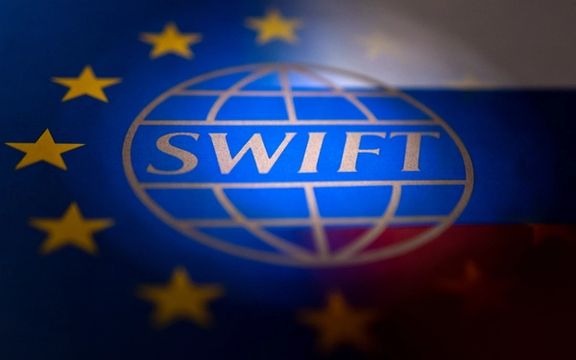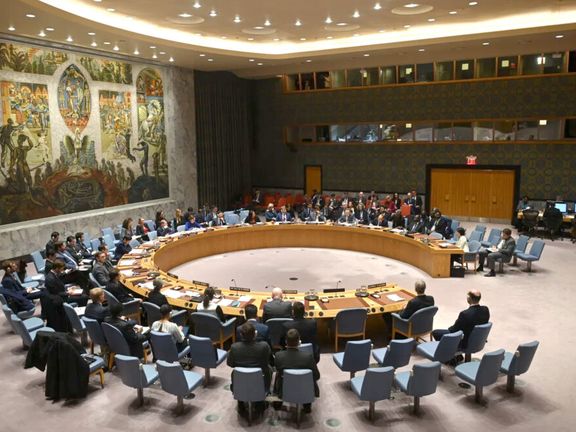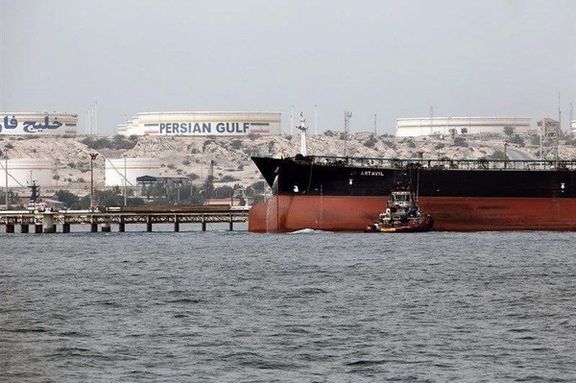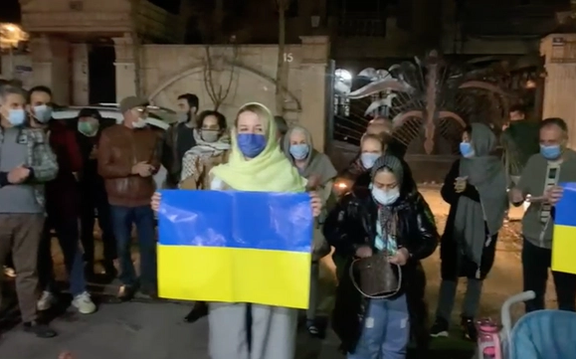Arrest Of Iranian Internet Activist Leads To Social Media Storm

The brother of Iranian dissident blogger and internet freedom activist Hossein Ronaghi says he has been on a dry hunger strike since his arrest four days ago.

The brother of Iranian dissident blogger and internet freedom activist Hossein Ronaghi says he has been on a dry hunger strike since his arrest four days ago.
Hassan Ronaghi, also an activist, said in a tweet on Sunday that his brother contacted the family earlier in the day, adding that he is not feeling well because he has also stopped drinking water and fluids.
He said he asked his brother to end the hunger strike but Hossein Ronaghi responded that he would not do that until he is freed.
Iranian social media users have launched an internet campaign since Saturday, and hashtags #Hossein_Ronaghi (in Persian) and #ReleaseRonaghi in English are currently among the most trending on twitter.
According to his family and friends, security forces have 'abducted' him at around 11:00 AM Wednesday near his house after leaving for work.
Ronaghi's father Reza Ronaghi has said Supreme Leader Ali Khamenei was directly responsible for his son's life, threatening to set himself on fire in public if his son is not freed.
Ronaghi was first arrested, along with his brother Hassan, in the aftermath of the disputed presidential elections in 2009 for issuing proxies that allowed journalists and political activists to circumvent internet censorship. He was also charged with insulting Khamenei in his blog posts.
According to Amnesty International, Ronaghi was badly tortured in prison after his arrest in 2009 and underwent at least four operations to fix his damaged kidney which could not be saved and had to be removed.

It is hard to predict the impact of Western sanctions on Russia, but there is the example of Iran and its myriad of economic problems triggered by sanctions.
Over the weekend, Western countries moved to expand economic sanctions against Russia that threw tens of thousands of troops with tanks and air power to conquer Ukraine. President Vladimir Putin’s decision was the most serious challenge to Western security perhaps since World War II.
Finally, Western countries agreed to remove several Russian banks from the international banking system SWIFT, an action that was also taken against Iran in the past decade.
While, unlike the Iran case, Russian oil and gas have not been sanctioned, experts agree that banking and other sanctions will impact its energy exports and revenues Moscow depends on.
Western sanctions threaten to substantially weaken the Russian ruble, as well as the health of its banks. They could also trigger high double-digit inflation, a sharp recession and serious unemployment, with their inevitable political consequences. These in combination could turn into a systemic affliction that would be hard for Russia to shake off even after the crisis end in some sort of positive resolution.
Iran’s example is there to see. Although international sanctions were lifted in early 2016 after a nuclear deal was signed and Iran was able to take a deep breath, its international trade and banking were far from normal.

Iranians complained for two years that foreign companies were reluctant to deal with them, banks would not easily cooperate to facilitate trade deals and even ordinary Iranian expats encountered problems in other countries to extend visas, open bank accounts and receive credit lines.
Residual sanctions syndrome
This is what we can call ‘residual sanctions syndrome’. One of the most important aftereffects of international sanctions is loss of credit worthiness in the world financial system, even after sanctions are formally lifted. Institutions are extremely cautious to lend money and most importantly foreign investors avoid a country that experienced Western sanctions.
Again, Iran is a good example. The two-year period from 2016-2018 when most economic sanctions were removed, Iran had a hard time to get major deals and joint ventures. While the country needed tens of billions of dollars in investment, it was able to secure just a few billion dollars.
When Donald Trump became president and criticized the nuclear agreement in 2017, the few investors, such as the French energy giant Total, which had carefully tip-toed into Iran after sanctions had been removed, immediately slowed down investment and eventually withdrew when the US began reimposing sanctions.
Economic sanctions in today’s global economy are also complicated matters and even after they are removed many financial and business actors are not sure what provisions and regulations have been relaxed and how to make decisions without risking legal complications.
One aspect of the residual sanctions syndrome is the persistence of the underlying political factor(s) that led to a sanctions’ regime in the first place. Iran did come to an agreement with the United States and its allies over limiting its nuclear program, but it was still perceived as a pariah state because of its anti-Western foreign policy and its continued overt and covert destabilizing actions in the Middle East.
The psychological aftereffects of sanctions tend to be strong if the sanctioned party is expected to re-exhibit erratic behavior. Would-be investors and trade partners know that there is an inherent risk of doing business with an actor that was once pressured by sanctions and is likely to repeat undesirable actions either driven by aggressive impulses, ideology or militarism.
Even if Putin resolves the Ukraine issue with an agreement and the immediate causes of sanctions are resolved, Russia will lose trustworthiness with business decision makers who simply cannot be sure when the next crisis will come.

An anti-smuggling official in Iran has said the volume of smuggled goods is at least $12.5 billion and only one-third of the goods involved is discovered.
In a television show on Saturday, the head of Iran’s Headquarters for Combating Smuggling of Goods and Foreign Exchange, Ali Moayedi Khorramabadi, said the figure was over $25 billion about 10 years ago, accounting for almost one-third of the country's total trade.
He noted that due to political conditions and economic sanctions imposed on the Islamic Republic trade is not conducted in accordance with international laws, therefore a lot of commodities are smuggled in or out of the country.
He did not clarify whether the figure he mentioned includes goods that enter or exit the country with some sort of authorization by the government or the Revolutionary Guards or other organizations that help Iran circumvent United States’ sanctions.
Moayedi said that some of the smuggled commodities uncovered by authorities, such as flowers and pesticides, are destroyed but some of them such as home appliances and clothes are sold in the market.
He added foreign cars seized by the anti-trafficking organization are usually destroyed because no other country agrees to buy them due to a lack of proper registration and documents.
In January, the Washington Post uncovered a large diesel smuggling network, revealing the role of the Revolutionary Guard in the illicit trade.

The UN Security Council is due to vote Monday on a proposal by the United Arab Emirates to impose an arms embargo on Yemen's Houthis after the group claimed several drone and missile assaults on UAE.
The measure would expand a targeted United Nations arms embargo on several Houthi leaders to the whole group. The measure needs nine votes in favor and no vetoes by Russia, the United States, Britain, France or China.
A Saudi-led coalition, including the UAE, intervened in Yemen in 2015 after the Iran-aligned Houthis ousted the internationally recognized government from Sanaa. The Houthis say they are fighting a corrupt system and foreign aggression.
The coalition, the United States and UN sanctions monitors have accused Iran of supplying the Houthis with arms, which both Tehran and the group deny.
The war has killed tens of thousands of people and caused a humanitarian crisis, pushing Yemen to the brink of famine.
A year ago President Joe Biden's administration revoked a US designation of the Houthis as a terrorist organization over concerns that it would worsen Yemen's humanitarian crisis. Former President Donald Trump's administration had blacklisted the Houthis one day before Biden took office in January 2021.
The United Arab Emirates, Saudi Arabia and some American lawmakers are pressing the White House to return the Houthi movement to the US list of foreign terrorist groups over the recent Houthi attacks on the UAE and Saudi Arabia.
Reuters Report

After the Russian invasion of Ukraine began some analysts said oil can hit $130 a barrel and Iran's supplies will be needed, but prices pulled back on Friday.
Bloomberg quoted Rystad Energy Chief Executive Jarand Rystad as saying that the conflict could jeopardize one million barrels of crude that flows through Ukraine and the Black Sea, but “long-term disruptions could be far more significant.”
Adi Imsirovic, a Senior Research Fellow at the Oxford Institute for Energy Studies and former oil trader, said in a report published by Reuters that he is surprised the price has not jumped to $130 per barrel already. One reason could be that simmering tensions for the past months already contributed up to $10 a barrel to recent price increases.
But on Friday prices that had spiked above $100 a barrel retreated, signaling some reassurance that the West does not intent to sanction Russian energy supplies. Half of Russia’s crude oil exports, 2.3 million barrels a day go to the West.
Russia supplies ten percent of the world’s oil and is the second largest natural gas producer after the United States. Europe depends on Russia for close to 40 percent of its natural gas consumption.
President Joe Biden signaled on Thursday that he may release more supplies from strategic reserves in coordination with other countries, to address any shortfalls.
Analysts also raise the possibility of a nuclear agreement between Iran and the United States that could end Washington’s oil export sanctions on Tehran and help control prices. But Iran has little extra capacity, which is already not being utilized and exported. However, Imsirovic noted that Tehran has stockpiled 80 million barrels on tankers at sea that could be an immediate partial help.
An agreement between the US and Iran, however, remains uncertain as signals indicate Tehran insists on its tough conditions and US says “serious issues” remain unresolved. Statements by Iranian officials have not signaled of a softening of their position. Tehran still demands more US sanctions to be lifted and on Friday its nuclear chief said the country will continue to enrich uranium at 20 percent, even if sanctions are lifted.
It is not clear if Washington will make more concessions at this point, although the need to increase oil supplies looms large when the United States is confronting rising inflation.
Saudi Arabia and other Middle East producers could try to increase output too. Analysts are not sure whether low production by the Saudis is intentional or the result of technical limitations. The kingdom reduced output in 2020 when demand slumped with the pandemic. Some say that it is not easy to revive reduced production. But if Riyadh is holding back production that could also be related to Iran.
Saudi Arabia is not thrilled by the Biden Administration’s attempts to reach a nuclear deal with Iran, which many see as a weak arrangement that would not prevent Tehran from getting close to producing nuclear weapons. Many regional countries see the specter of a nuclear Iran as a serious threat to their security.
There is also the issue of Tehran’s support for Yemen’s Houthi rebels that fight a Saudi-led coalition that intervened in the country to support the internationally recognized government.

Videos on social media Saturday evening appeared to show police dispersing protesters chanting “Death to Putin” outside the Ukrainian embassy in Tehran.
After a summons to protest on social media, those assembled also chanted "Russian Embassy Is Den of Spies," "Death to Warmongers and Putin Supporters," "Putin Murders, the Stupid Ones Support,""Long Live Ukraine," and "Long Live Peace.”
Police began dispersing protesters a short while after they began to gather. A woman is seen in one of the videos telling the police, “We hate you.”
Videos on social media also showed police had cordoned off the Russian embassy in central Tehran to prevent protesters gathering there. Iran International has learned that additional security measures were put in place around the embassy as soon as calls for a protest went out on social media.
Iranian leaders, including President Ebrahim Raisi and Foreign Minister Hossein Amir-Abdollahian, have generally attributed the crisis in Ukraine to Nato and American “provocations”. They have called on Russia and Ukraine to call a ceasefire and find a diplomatic solution to end it.
Some Iranians and media outlets are unhappy with this. Reformist commentator Sadegh Zibakalam has tweeted “solidarity” with Ukraine and condemned what he called the Iranian government's support of Russia: "Contrary to the government's stance, the hearts of many Iranians are with the people of Ukraine and they condemn this aggression.”
The conservative Johmouri Eslami newspaper said Saturday that Russia had “clearly violated Ukraine's sovereignty” and that “military occupation of a country is against international regulations and ethical values.”
According to Modara news website, Mahmoud Abbaszadeh-Meshkini, spokesman of the parliament's National Security Committee, said Saturday that any recognized political party could submit an application to the interior ministry for a protest rally, including over Ukraine.
"Will you agree to permit a protest rally if a group of Iranians decide to stage a rally in front of the Russian Embassy to protest against the Russian invasion of Ukraine or it is [considered] against [Iran's] national interests?" journalist Mohammad Mohajeri asked in a tweet addressed to Interior Minister Ahmad VahidiSaturday.
Despite a constitutional right to freely protest, provided that participants do not carry arms and do not cause damage to "foundations of Islam", authorities regularly ignore applications for holding protest rallies.
Iran's state broadcaster (IRIB) controlled by Supreme Leader Ali Khamenei and media such as Fars and Tasnim news agencies affiliated with the Revolutionary Guard, have generally avoided the use of the word ‘attack’ and referred to "Russia's special military operations in eastern Ukraine."
This has riled some. Reza Ghobishavi, deputy editor of the conservative Asr-e Iran news website, criticized Thursday media outlets that had "sacrificed their credibility by siding with Russian President Vladimir Putin."
Former conservative deputy speaker of parliament Ali Motahari in a tweet Thursday compared IRIB to a “Russian colony.”